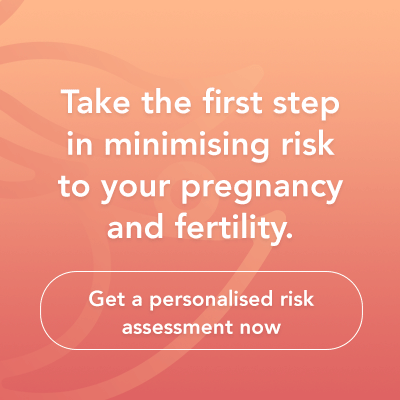As women age, the journey to pregnancy can be affected by various factors, including hormonal shifts, lifestyle habits, and dietary choices. For women over 35, maintaining a healthy fertility diet is essential to enhance reproductive health and increase the chances of conceiving. Nutrition plays a crucial role in supporting hormonal balance, egg quality, and overall well-being, especially as the body undergoes natural age-related changes.
The Impact of Age on Fertility
By the age of 35, women may experience a decline in both the quantity and quality of their eggs. Hormonal fluctuations, such as lower levels of oestrogen and progesterone, can also lead to irregular cycles, making it more challenging to conceive. In addition, lifestyle habits like stress, lack of sleep, and poor nutrition can exacerbate these effects. However, it’s important to note that good nutrition can still significantly improve fertility outcomes, especially when combined with the professional guidance of Katrina Ridout, a nutrition specialist in Queensland, who helps women optimise their fertility diet.
Key Nutrients to Support Fertility After 35
Antioxidants
As women age, oxidative stress can damage eggs and reduce fertility potential. Foods rich in antioxidants—such as berries, nuts, seeds, and leafy greens—help combat this damage and protect egg quality.
Healthy Fats
Omega-3 fatty acids are vital for hormone production and overall fertility. Incorporate fatty fish like salmon, walnuts, chia seeds, and flaxseeds into your diet to improve egg health and reduce inflammation.
Folic Acid
Folic acid is a key nutrient for fertility, and it’s essential for women trying to conceive. Ensure your diet includes leafy greens, beans, lentils, and fortified grains, or consider a supplement to support pregnancy and reproductive health.
Protein
Opt for high-quality protein sources like lean meats, poultry, tofu, and legumes. A balanced intake of protein can help regulate blood sugar levels, which is important for fertility, especially if you have conditions like PCOS.
Whole Grains
Refined carbohydrates can cause blood sugar spikes, leading to hormonal imbalances. Instead, opt for whole grains like quinoa, brown rice, and oats, which provide steady energy and support hormonal balance.
Role of Gut Health in Fertility
Did you know that a healthy gut can improve fertility? A balanced microbiome plays a vital role in hormone regulation and immune function. Including fermented foods like kefir, yoghurt, and sauerkraut can help support gut health and enhance fertility.
Katrina Ridout Nutrition’s Approach to Fertility
Katrina Ridout emphasises that fertility is not just about diet but about a holistic approach to overall health. She advocates for personalised nutrition plans tailored to an individual’s health needs, lifestyle, and fertility goals. Through a combination of nutrition education, lifestyle changes, and supplementation when necessary, women over 35 can optimise their fertility health.
Katrina’s approach often includes incorporating nutrient-dense, anti-inflammatory foods that support hormone regulation and egg quality. She also focuses on reducing stress through mindfulness and balanced nutrition, recognising that mental and emotional health are just as important as physical health in fertility.
While age does affect fertility, a well-balanced, nutrient-dense diet can make a significant difference in your ability to conceive. Women over 35 should focus on incorporating antioxidant-rich foods, healthy fats, and whole grains while working with nutrition experts like Katrina Ridout in Queensland to ensure their diet is aligned with their fertility goals. Through careful attention to nutrition, women can improve their chances of successful conception and enjoy better overall reproductive health.
By focusing on a targeted fertility diet and incorporating the right nutrients, women can enhance their chances of pregnancy and better navigate their fertility journey.
